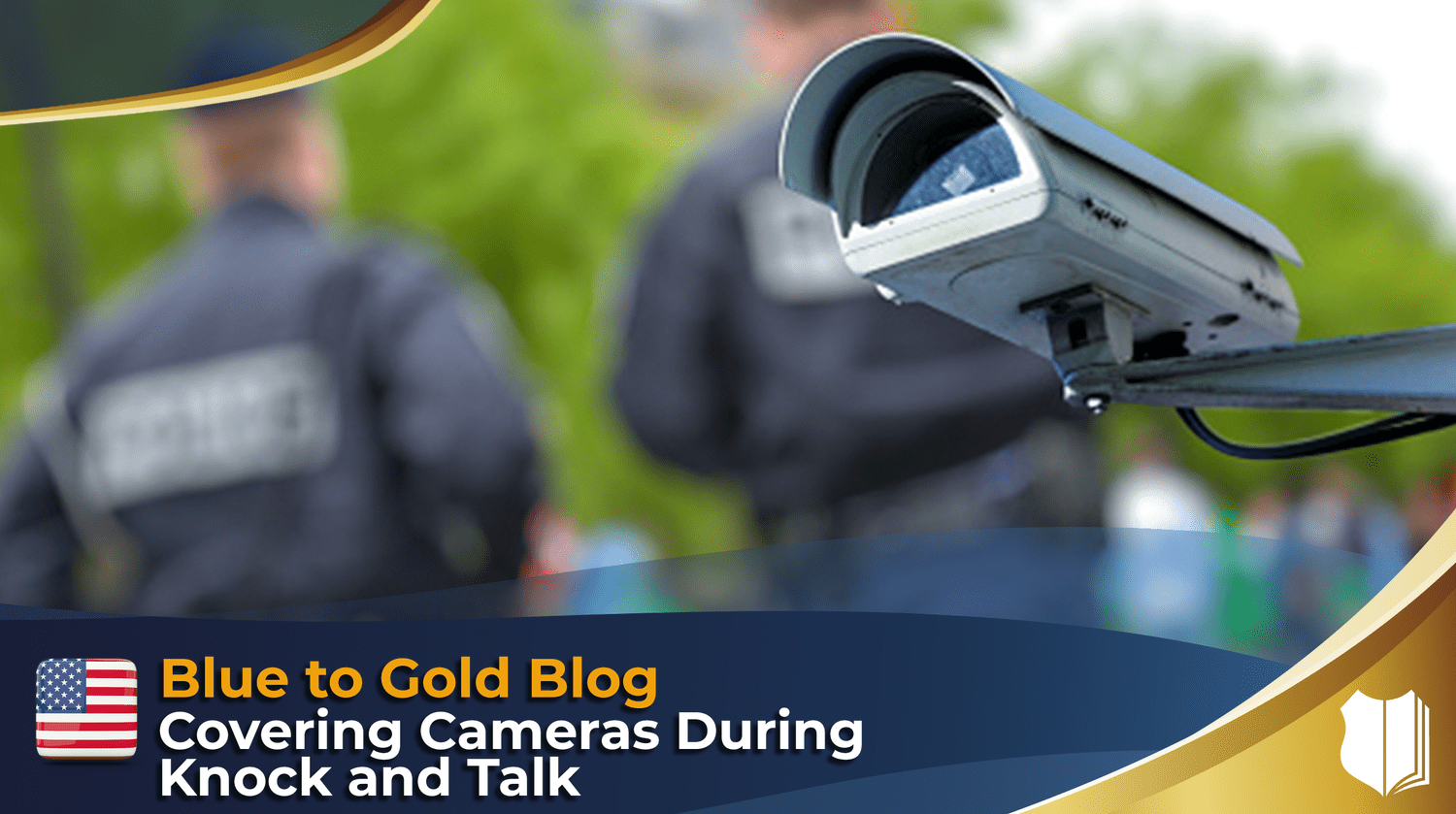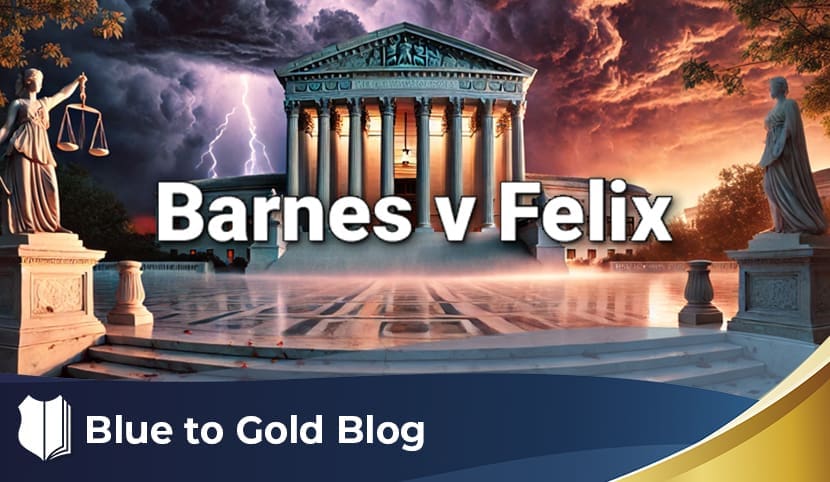Can police cover up cameras during a knock and talk? That’s a good question.
This question comes from a civilian in New Jersey. You know that I enjoy answering questions from civilians as much as I do from cops, because I think it’s important for all of us to know the law.
This person says, “All right, I saw a couple of videos where cops covered up or moved home security cameras so that they couldn’t be seen. In one case, there was a knock and talk, and they covered up a camera with a toy or something. And in another one, they went into the backyard and moved it.”
What is the constitutional issue there? Well, look, it’s a little tough, right? Because I’ve never seen any case directly, on this point, but let me give you some guidance.
Number one is a that a knock and talk should not exceed social norms. So when police go on to people’s curtilage, they should act like reasonably polite citizens. Because the way that the courts look at it is that it’s an implied invitation. It’s a license, right? That’s what they call a license to enter a person’s curtilage, and to try to make contact.
Well, what do you get to do? What do you get to not do? You get to do those things that you believe would be socially acceptable.
So, then I would ask this, “If I was in a room teaching cops, I would say, hey, if I go to your house, and I’m selling vacuum cleaners, (yeah, some people still do it), I gotta make a living; and as I’m in your house, I’m covering up your camera with my hand. I’m moving your camera, so it cannot physically see me. How do you feel about that? Do you feel that I’m crossing a line?”
And most cops have an attitude, “That actually kind of pissed me off, because that’s what the cameras are there for.” They’re there for me to see you. And I say, “Well, how are the rules any different for you, when you’re at my house?”
And then the cops say, “But Anthony, with all due respect, we don’t sell vacuum cleaners, we’re trying to find the person who killed the person with the vacuum cleaner.” And I say to you, “My heart is with you. But the law is not.”
In other words, if you are going to go onto somebody’s curtilage and utilize a technique known as a knock and talk, you don’t get any more latitude or leeway power than the guy selling a vacuum cleaner. You might not like it, but that’s the way it is.
All right. We recognize that the knocker on the front door is treated as an invitation or license to attempt an entry, justifying ingress to the home by solicitors, hawkers, and peddlers of all kinds. But don’t think that this means that you can go into the home because it has a doorbell or something.
When you have a knocker on the door or you have a doorbell, it gives you the impression that the people there would not mind if you tried to contact them. Thus, a policeman not armed with a warrant may approach a home and knock precisely because that is no more than any private citizen may do.
So again, you don’t get any extra power. Also, a seizure of property occurs when you intentionally interfere with an individual’s possessory interest in the property. In other words, when you mess with somebody’s stuff, and they cannot use it like they want to use it, or they intended to use it, that could be considered a seizure under the Fourth Amendment.
Now, turning back to the question at hand, was moving the camera or covering the camera, a Fourth Amendment issue? I have to tell you, I’m not positive either way. I think that there could be a viable non-frivolous argument that doing such implicates the Fourth Amendment because you’re dealing with the home. Again, it could be a seizure under the Fourth Amendment. It also may violate a person’s expectation of privacy.
Maybe in a stretch it could implicate the Fourth Amendment. But it could also be good old fashioned criminal trespass. Say I went to somebody’s house, and I was messing with their cameras, I moved their cameras, and they called the police, which they probably would, and you arrived on scene, and you asked me, “Sir, what are you up to?” And I say, “I’m a politician looking for votes.” What would you do with me? You probably wouldn’t arrest me. But you would probably think that this is very suspicious. At least I would say that the homeowner would trespass me from their property.
So that’s probably what’s kind of going on here. So we understand that what I did here may not be illegal per in some states, but it’s just not kosher. You would not agree with someone doing that.
So that’s my answer. The cops should not be doing this. Putting your hand over the camera is one thing, but moving that camera and manipulating it, I don’t like it without a warrant. If I’m there for a knock and talk, maybe I shouldn’t be doing that.
The other thing that the the person put out there, is that he also saw a cop dismantle a ring door camera and throw it in the bushes. This was caught on a second home security camera. Is this constitutional? No, that’s not constitutional. That definitely interferes with a person’s possessory interest.
It’s also probably criminal trespass. You’re destroying people’s property. So I don’t know the backstory to what is going on here. But take it at face value. There was an officer that went into somebody’s home and destroyed their ring camera because of whatever, and did not have a search warrant or have any reason for doing that. No legit reason for doing that. Shame on them. That sounds like a criminal to me, not like a police officer.
Now, maybe they had a legit reason. I don’t know. But with those facts, and those facts alone, it doesn’t sound legit. Let’s leave it there.
If there’s anything we can do for you, if you want to bring us in to teach your whole agency search and seizure interview and interrogation law, let us know. We have new courses coming out for search warrants, courtroom testimony, etc.
All right, my friends, thank you so much. Keep the questions coming. I hope this helps you get it right every single time








